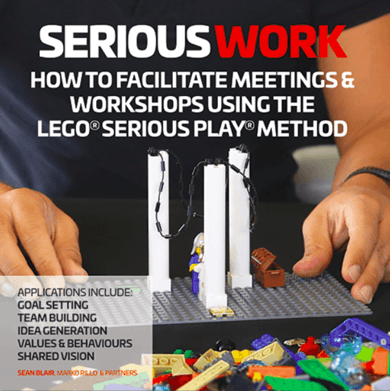Forum Replies Created
-
AuthorPosts
-
November 15, 2022 at 9:01 pm #22755
Alejandro Cabral
ParticipantHey Christian, how are you? I mostly work with smaller teams, never more than 12 people when I can, but every now and then a larger group comes in. This is how I’ve approached those workshops, after consulting with trainers and more Sr. facilitators:
1. Try to recruit at least 1 more facilitator to keep that 1-to-12 ratio when possible.
2. Definitely break them up. With that number, I’d do at least 2 tables (1 per facilitator), or if you want to do smaller tables, you might need to consider more facilitators. Also keep in mind that having all 23 people pay attention to each model is not practical. Smaller tables help. Setting up teams will maximize the attention they will be able to pay here.
3. Spend the proper amount of time on the skill builds part, but don’t go into rabbit holes. Move fast.
4. It seems the objective of the meeting is well-defined. Make sure your stake-holders (or who is actually hiring you) is 100% aware of possible outcomes here.
5. With large crowds, timing is everything. With longer activities, I try to keep each person’s time (build, explain, reflect) below the 5′ threshold.
6. And finally…consider adding another day.Good luck!
November 1, 2019 at 9:34 pm #14040Alejandro Cabral
ParticipantWould love to hear about the price on those Lindsay!
July 15, 2019 at 1:51 am #13795Alejandro Cabral
ParticipantHi Priscila! It sounds like a good scenario to work with shared models to me, as they will need to make decisions as a team. Something that sounds appealing to me is working on the skills they will need to actually overcome their crisis first, and then working on what could be their plan for the future. Both plans have in common one question: what do they need to keep and develop (and why), and what do they need to drop (and why).
A good pre-workshop session with their leaders would be a good idea, so you can extract a few desired outcomes from them. From the description you shared, it does look like they are going through a crisis and need to figure out how to overcome it, so I would start with getting a clear direction from them. Do they want to understand why they are failing? do they want to innovate? are they thinking about changing the team culture? is it really about planning, or sales? All those questions usually help!
I like your idea about having them create different scenarios. As a follow-up to that, I’d ask them to build something together with what they identify as the core of each model and see if there’s consensus around a potential “best” scenario in that case.
hope that helped!
July 13, 2019 at 3:57 pm #13790Alejandro Cabral
ParticipantJuly 13th Update:
I already had 2 personal brand workshops, based on finding their identity. Johari’s was a good idea, as I had used before on similar quests but in this case, it really added tangible value to participants (meaning, not “whiteboard value”, not written but built) and through the models they built they were able to find elements on which they will work later on as part of their own brand building journey.
Something I noticed was that it was relatively easy for most participants (had 2 groups of 4 and 6 people) to build aspirational models and extract real solid elements to later drop in a business canvas-like model. Part of the workshop was devoted to understanding there is no value proposal without vision and thus, they worked on finding / creating their visions which would later become part of that canvas.
Worked like a charm!
-
AuthorPosts

 Become a LEGO Serious Play facilitator - check one of the upcoming training events!
Become a LEGO Serious Play facilitator - check one of the upcoming training events!